Love, Resentment & Redemption: The Many Faces Of Family In Malayalam Cinema
Malayalam cinema shatters the myth of the perfect family, delving into dysfunction with realism and nuance, while exploring the fragility, resilience, and evolving nature of familial relationships.
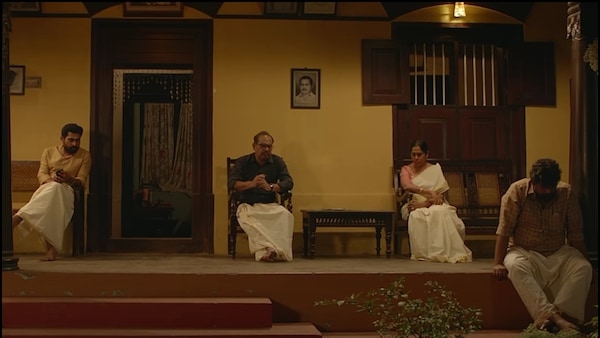
Still from Narayaneente Moonnaanmakkal
Last Updated: 05.02 PM, Feb 17, 2025
THE TRADITIONAL NOTION OF A PERFECT FAMILY has long been debunked in Malayalam cinema, where filmmakers have consistently pushed the boundaries of storytelling to explore the complexities of family dynamics. The result is a body of work that lays bare the imperfections, flaws, and fragilities of modern family life. In this exploration, we try to delve into the tangled relationships and fractured bonds that define contemporary family life in Malayalam cinema.
As Bhaskaran (Suraj Venjaramoodu) and his family arrive at the hospital, Sethu (Joju George) warmly greets them, while the eldest brother Vishwam (Alencier) smiles with effort. When Bhaskaran points out that there was no one to greet them at the airport, while Sethu shows concern, Vishwam downplays it. This opening passage in Narayaneente Moonnanmakkal not only subtly underscores the complex dynamics between the three brothers but also sets the tone for the narrative. Directed by Sharan Venugopal, the narrative, placed in a small town in Kerala, pivots around three estranged brothers who are back home to visit their critically ill mother. Each brother has his unique struggles: Bhaskaran was forced to leave home 25 years ago following an inter-religious marriage, Sethu is a bachelor who feels ignored, while Vishwam still harbours social and caste biases.

As the narrative takes its own sweet time to unfold, the brothers gradually reconnect with their roots and each other. The introduction of a romantic subplot involving their children adds complexity to the proceedings. Soon enough as their past conflicts and unresolved bitterness resurface, the brothers are forced to confront their differences. Everything is played out with such nuance that the portrayal of complex emotions is often conveyed through silences and subtle interactions. The brothers' personalities are skillfully revealed through the eyes of their children. That’s when we know that Bhaskaran’s progressiveness is a mere facade, or that Vishwam’s bluntness is often a decoy to hide his vulnerability and that Sethu is the “coolest” of the lot.
In a pivotal scene when Bhaskaran tries to strangulate his bedridden mother turns out to be the ice-breaker for Vishwam as he admits attempting something similar. It’s a thoughtful and realistic exploration of family dynamics that eschews feel-good resolutions for a more authentic portrayal of dysfunctional relationships. They would still go back to their lives and jobs but what’s apparent is that they have strived to understand each other, setting aside their differences, if only momentarily. It tells us that home is always the space where disputes and togetherness coexist.
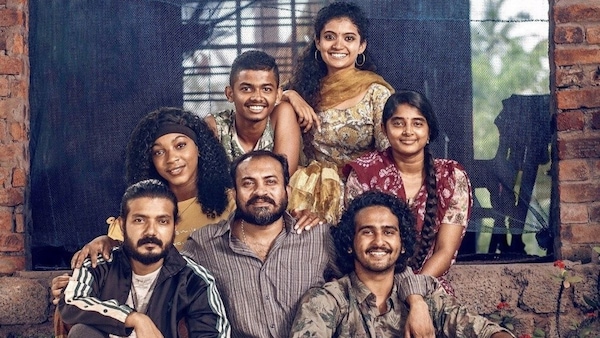
But in Kumbalangi Nights, the complexities of dysfunctionality are expertly woven as the Napolean sons are also navigating their relationship as half-brothers. The narrative opens with their chaotic household and relationships where the brothers are battling their demons. Despite being the elder brother, Saji (Soubin Shahir) shirks responsibility and lives on his friends' money. Only the youngest brother Franky (Mathew Thomas) seems to be troubled by this strife and is unable to mediate between his three brothers, (Saji, Bobby, and Bony) who are always at odds. After their father’s death, their mother has embraced spirituality, leaving the brothers to tend to themselves, preceding feelings of displacement and abandonment. And the societal ridicule further worsens their emotional turmoil. They are neither able to temper this familial discord nor get a hold of their interpersonal relationships. Though it can be seen as a conventional solution, eventually it is the entry of women who lend a semblance of order and security to their family, even mitigating the strife between the siblings. In the end, the film poignantly illustrates the redemptive impact of supportive relationships on fractured family bonds.
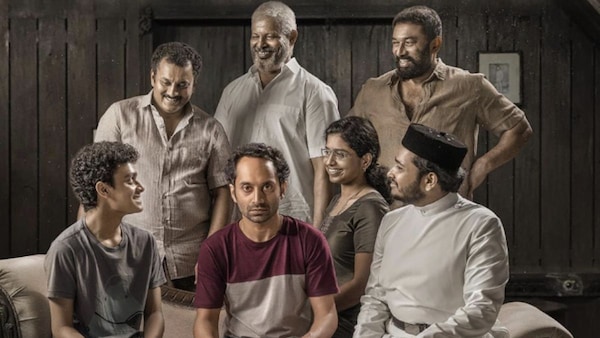
In Dileesh Pothan’s Joji, the dysfunctionality stems from the iron-fisted rule of a patriarch. So when the old man gets bedridden, his three adult sons who were under his control, react differently. While the eldest brother (Baburaj), who was always a devoted son is truly devastated, the same cannot be said about the middle brother who is looking for a way out of his father’s reign. As for the youngest Joji (Fahadh Fasil), he takes this opportunity to exploit the cunning plans, egged on by his sister-in-law. In this household seeped in hypermasculinity, years of suppression have taken a toll on the brothers. If the elder one is a single parent and an alcoholic, the middle one wants to come out of his father’s shadow while the youngest feels neglected and inadequate. If the lone woman feels voiceless and marginalised, the men owing to emotional repression and unrealistic expectations feel isolated and disconnected within their families. In the end, as the dysfunctionality deepens, it also exposes the darkest aspects of their personality, spiralling them into a cycle of destruction and chaos.
Meanwhile, Falimy directed by Nitish Sahadev tackles the family discord with a dash of humour, without downplaying the complexities. At the core of this family drama stands Anoop (Basil Joseph), the eldest son of a dysfunctional family consisting of his parents, granddad and younger brother. A dubbing artist by profession, Anoop doesn’t get along with his father (Jagadish), a drunkard clinging to a defunct printing press. While the mother (Manju Pillai) works tirelessly to make ends meet, his granddad yearns to see Banaras, and his younger brother tries to lighten the mood at home.
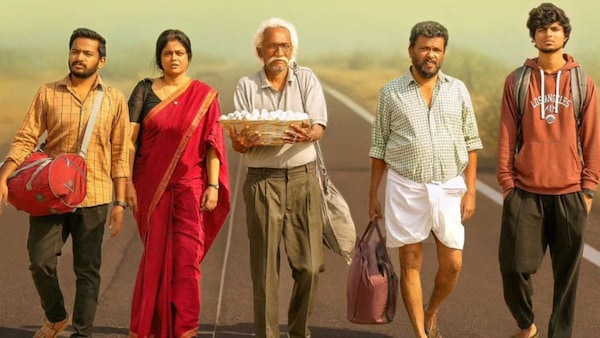
Having been brought up in a household where the father remained distant and irresponsible, Anoop is not just resentful of his father, but it has also left emotional scars on him. Even when the mother carries on without complaints, it is Anoop who feels betrayed, perhaps due to his conditioned patriarchy. That toxic conditioning is there in his inability to accept rejection or when he chooses to abandon his engagement when a random stalker tries to create trouble. What’s ironic is how self-aware the members are about the situation, yet they are too caught up in the daily struggles to resolve it. But now and then the resentment boils over into heated arguments between the son and the father, leaving their mother exasperated. It’s a family who knows travelling together can be a nightmare, yet miraculously when in need they just seem to get it all together. It’s a flawed, chaotic and supportive family that embodies the complexities of love and relationships. Like every other family for sure.
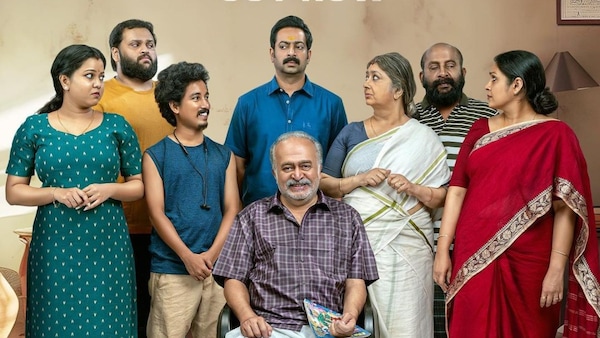
What sets Krishnadas Murali’s debut Bharathanatyam apart is how he lends a witty spin to a familiar theme in Malayalam cinema. There is a joint family headlined by an elderly patriarch (Saikumar), his wife (Kalaranjini), and their children. When a health scare prompts the patriarch to reveal his secret second family, the conflict begins to simmer. Sure, filmmakers have squeezed this theme of adultery with melodramatic results (Balettan, 2003) but here they employ satire to tackle the complexities, cleverly subverting the traditional tropes. So instead of dramatic tension, the film opts for humour, making every potentially explosive moment into a comedic gem. Interestingly the patriarch is ultimately left on the sidelines by the women he deceived. Bharathanatyam can be seen as a plausible mirror to the future where relationship dynamics are evolving and being redefined.

 Premium
Premium